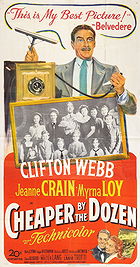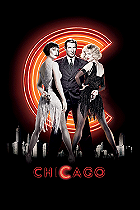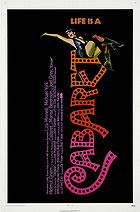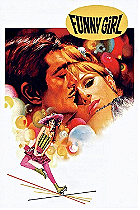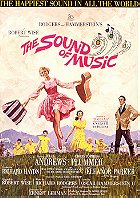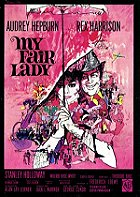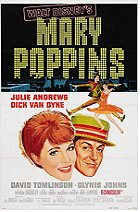24-karat cynicism at its most entertaining. Chicago is a solid racehorse of a movie musical, and it feels more classic in its presentation than many of its contemporaries. It loads the cast up with movie stars (a mixed bag, but mostly successful), glittery costumes, and grandiose production numbers. It might skirt some of the deeper thematic material at play, but it gives us, as crooked lawyer Billy Flynn sings, the old razzle dazzle and has us begging for more.
Chicago tells the story of a dreamer with questionable talent but titanic ambition, Roxie Hart (Renée Zellweger), who is arrested for the murder of her lying lover and goes on to some amorphous level of fame thanks to playing the media. Pushing the limits of the phrase “there’s no such thing as bad publicity,” the merry murderess brushes up against the fallen vaudeville starlet Velma Kelly (Catherine Zeta-Jones), the prison matron Mama (Queen Latifah), and her lawyer (Richard Gere) on her way towards the Jazz Age’s equivalent of reality star fame.
The relationship between Roxie, Velma, and Billy is the diseased heart of the piece, and if some of the acid from the Broadway show has been demurred, then it smartly tries to copy pieces of Bob Fosse’s style in translating it from stage to screen. Director Rob Marshall is no Fosse though, and a few of his editing choices are just frenzied and strange, lacking the organized chaos of Cabaret and All That Jazz. Still, Marshall borrows a few of the smarter ideas that Fosse created with Chicago, like the surgical removal of a bulk of the musical numbers from the narrative proper, and plucks them down into Roxie’s imagination.
The musical numbers work less as narrative propulsion then they do as running color commentary on the various characters and plot developments. A few of them are quite clever, like the brief moment in “All That Jazz” when Roxie mentally replaces Velma on stage, or when Billy turn the press and Roxie into puppets during the press conference setting of “We Both Reached for the Gun.” “We Both Reached for the Gun” is the wittiest part of the movie, in a movie filled with biting wit, as it lays bare the culpability of the press in turning murderers into folk heroes and transforming journalism into pulp fiction.
Those pulpy headlines are a battleground between Roxie and Velma, as they try to achieve fame, or infamy depending on how you look at it, through the press, and their ability to manipulate it into spinning highly melodramatic, largely fictional variations of their stories. Velma becomes something a pitiable figure, as she starts off as the big girl on the cell block before having to make fake-nice with her rival. This culminates in “I Can’t Do It Alone,” Velma’s solo ode to the joys of working in a duo, and Zeta-Jones’ dancing is an athletic wonder.
In fact, throughout Chicago Zeta-Jones steals the damn show with her long legs a few seconds away from a high-kick, her face framed in a flattering bob, and filling every frame with a dominating, lusty sexuality. She earned her Oscar by then end of “All That Jazz,” which is the opening number, and only solidifies her win by playing moments up for camp, high-concentrated bitchery, or a shocking tenderness in quiet moments. She’s the clear highlight of the piece, but she’s not alone in giving a great performance.
John C. Reilly as Roxie’s dim bulb husband Amos, a soul too pure for the world of this musical, makes for a perfect sad sack. His “Mr. Cellophane” is a moment of quiet emotional truth in a story obsessed with artifice and what we would call “branding” nowadays. Then there’s Renée Zellweger as Roxie, who is clearly not a dancer, but is surprisingly warm as a singer, and comes across as more vulnerable and hungry than I remembered previously. She sells the hell out of “Roxie” and “Funny Honey,” but her technical limitations are evidenced in “Hot Honey Rag,” as she’s editing to the point of being anarchic while trying to dance next to Zeta-Jones. Still, her rough edges work well with the character, who is more dreamer than talent.
Even better is Queen Latifah’s Mama, as she belts out a fun, double entendre filled number, “When You’re Good to Mama,” and she leans in to the queer aspects of the character. So does Christine Baranski as reporter Mary Sunshine, going full drag queen in her minimal screen time. Richard Gere is the lone star that left me a little cold. He’s fine in the dramatics, but his vocals are occasionally reedy, and his big dance number is all 101 steps and difficult, so he never gets his big, glory moment in a musical that gives them to everyone else. He does fine supporting work, but he seems a little out-of-element in his musical numbers at times.
At a little under two hours with fifteen musical numbers, Chicago is a conventionally filmed musical that works like gangbusters. No fancy trickery is needed for this story, but the discordant editing hurts at times more than it energizes. It’s still one of the best recent movie musicals, and one hell of an entertaining ride with a perfect sense of pacing, as it just keeps going at a pleasing rhythm. It captures the vibe of sex and moral sordidness that marked the Jazz Age, and that audaciousness makes Chicago great.
 Login
Login
 Home
Home 95 Lists
95 Lists 1531 Reviews
1531 Reviews Collections
Collections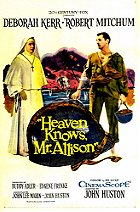
 0 comments,
0 comments, 